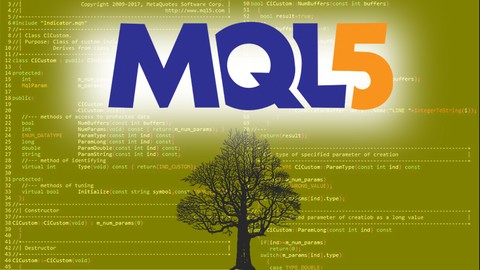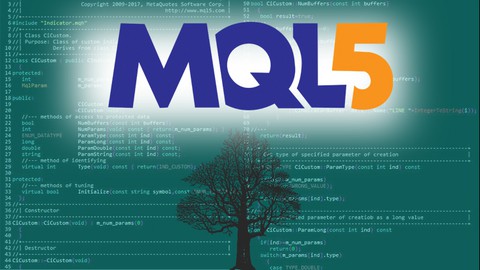Quantitative Finance & Algorithmic Trading in Python
Loại khoá học: Investing & Trading
Stock Market, Bonds, Markowitz-Portfolio Theory, CAPM, Black-Scholes Model, Value at Risk and Monte-Carlo Simulations
Mô tả
This course is about the fundamental basics of financial engineering. First of all you will learn about stocks, bonds and other derivatives. The main reason of this course is to get a better understanding of mathematical models concerning the finance in the main.
First of all we have to consider bonds and bond pricing. Markowitz-model is the second step. Then Capital Asset Pricing Model (CAPM). One of the most elegant scientific discoveries in the 20th century is the Black-Scholes model and how to eliminate risk with hedging.
IMPORTANT: only take this course, if you are interested in statistics and mathematics !!!
Section 1 - Introduction
installing Python
why to use Python programming language
the problem with financial models and historical data
Section 2 - Stock Market Basics
present value and future value of money
stocks and shares
commodities and the FOREX
what are short and long positions?
Section 3 - Bond Theory and Implementation
what are bonds
yields and yield to maturity
Macaulay duration
bond pricing theory and implementation
Section 4 - Modern Portfolio Theory (Markowitz Model)
what is diverzification in finance?
mean and variance
efficient frontier and the Sharpe ratio
capital allocation line (CAL)
Section 5 - Capital Asset Pricing Model (CAPM)
systematic and unsystematic risks
beta and alpha parameters
linear regression and market risk
why market risk is the only relevant risk?
Section 6 - Derivatives Basics
derivatives basics
options (put and call options)
forward and future contracts
credit default swaps (CDS)
interest rate swaps
Section 7 - Random Behavior in Finance
random behavior
Wiener processes
stochastic calculus and Ito's lemma
brownian motion theory and implementation
Section 8 - Black-Scholes Model
Black-Scholes model theory and implementation
Monte-Carlo simulations for option pricing
the greeks
Section 9 - Value-at-Risk (VaR)
what is value at risk (VaR)
Monte-Carlo simulation to calculate risks
Section 10 - Collateralized Debt Obligation (CDO)
what are CDOs?
the financial crisis in 2008
Section 11 - Interest Rate Models
mean reverting stochastic processes
the Ornstein-Uhlenbeck process
the Vasicek model
using Monte-Carlo simulation to price bonds
Section 12 - Value Investing
long term investing
efficient market hypothesis
APPENDIX - PYTHON CRASH COURSE
basics - variables, strings, loops and logical operators
functions
data structures in Python (lists, arrays, tuples and dictionaries)
object oriented programming (OOP)
NumPy
Thanks for joining my course, let's get started!
Bạn sẽ học được gì
Understand stock market fundamentals
Understand bonds and bond pricing
Understand the Modern Portfolio Theory and Markowitz model
Understand the Capital Asset Pricing Model (CAPM)
Understand derivatives (futures and options)
Understand credit derivatives (credit default swaps)
Understand stochastic processes and the famous Black-Scholes model
Understand Monte-Carlo simulations
Understand Value-at-Risk (VaR)
Understand CDOs and the financial crisis
Understand interest rate models (Vasicek model)
Yêu cầu
- You should have an interest in quantitative finance as well as in mathematics and programming!
Nội dung khoá học
Viết Bình Luận
Khoá học liên quan

Đăng ký get khoá học Udemy - Unica - Gitiho giá chỉ 50k!
Get khoá học giá rẻ ngay trước khi bị fix.


















Đánh giá của học viên
Bình luận khách hàng